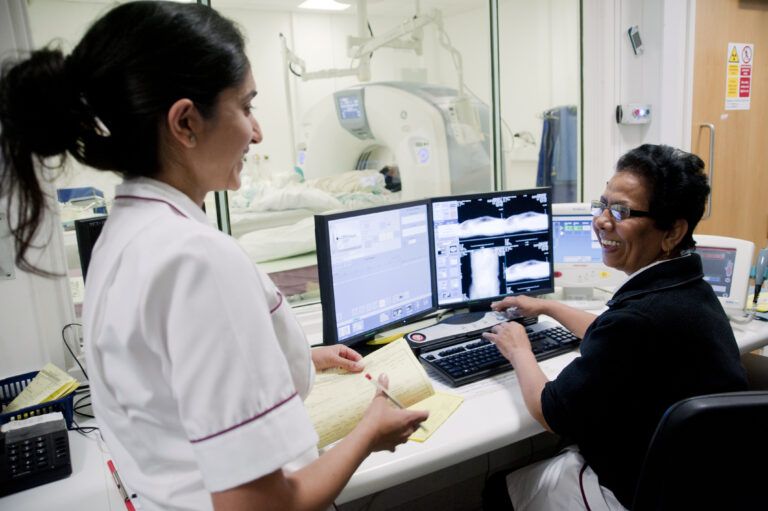Life QI – Quality Improvement software for healthcare professionals
The challenge
An increasing number of healthcare professionals within the UCLPartners region have been demonstrating an interest quality improvement (QI). Although a range of projects are being undertaken, many people have been working in isolation and running QI projects in different ways, making shared learning and collaboration extremely difficult. We saw an increasing demand for an online platform, specifically tailored to running QI projects, that would enable collaboration across organisations and equip teams with the tools they need to progress with their QI projects.

Facing the challenge
Life QI is an online platform designed to assist frontline health and social care staff in running quality improvement (QI) projects. Based on the Institute of Health Improvement’s (IHI) model for improvement, it supports frontline NHS teams to plan, monitor and report the progress of their improvement projects, as well as connect with other members of the QI community, facilitating collaboration and shared learning.
The platform was developed by Seedata LTD in partnership with South West AHSN. Access to Life QI is now being offered on a regional subscription basis through the AHSN network. UCLPartners adopted the Life QI platform in 2016, providing users within the region with free access to the platform. We have since worked very closely with our partner organisations to support the adoption and spread of the platform in conjunction with our regional and national priorities. The number of people using the platform, as well as active projects, is increasing each month, making it easier to collaborate with professionals on a local, regional or even national scale.
As a team supporting improvement work in an acute NHS trust, including several geographical sites, we have found the Life QI platform to be invaluable for sharing and developing Quality Improvement projects. Quality Improvement is new to many of our staff and Life QI has given them the ability to record all aspects of their projects in one place and communicate both with one another and the central Improvement Team. The links to the learning site have been an added resource and helped to facilitate learning about QI methodologies across wider teams.
Jackie Goodlock, Senior Improvement Facilitator at UCLH
Progress highlights
- Through UCLPartners, each partner organisation receives an allocation of 500 licences for free – this is equivalent to £30,000 per organisation.
- In October 2017, SeeData released the upgraded Life QI platform to the UK, equipped with new and enhanced functionality. Importantly the upgraded platform was designed in conjunction with our partner organisations, as well as the AHSN Network, ensuring the platform is catered to the needs of its users.
- All 23 trusts within our region have registered users on the platform and 14/23 Trusts actively use the platform each month.
- There are now 447 organisations (across primary and secondary care), 1241 active projects, 3504 registered users (with approximately 25% of users demonstrating activity in the last 30 days) using Life QI within the UCLPartners region.
- We are now seeing evidence of shared learning at scale, both within and across organisations e.g. NHS improvement maternal and neonatal health safety collaborative.
Impact
- Enables frontline staff to easily run improvement projects, allows central QI teams to coordinate the portfolio of work, and provides senior execs the targeted information they need to make crucial decisions.
- Facilitates communication and shared learning amongst project teams.
- Supports the spread and adoption of best practice and innovations at scale.
- Aids the development of QI capability at a regional and national level.
Supports open collaboration within and across organisational boundaries.